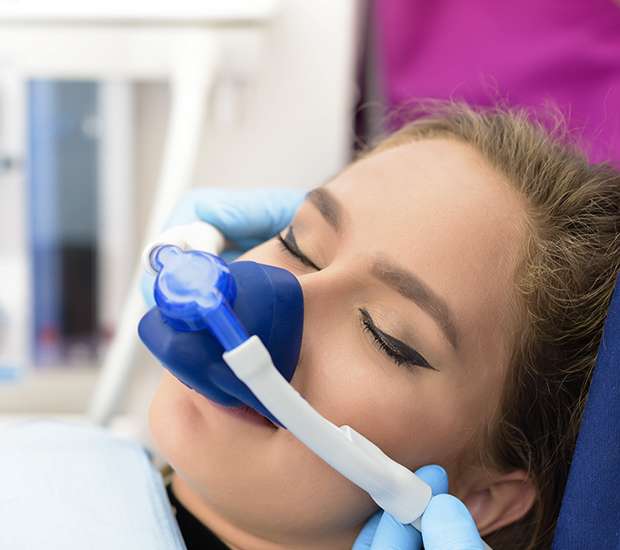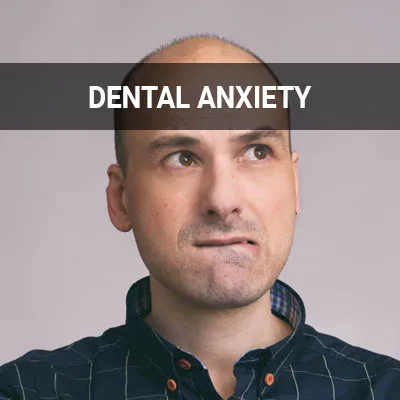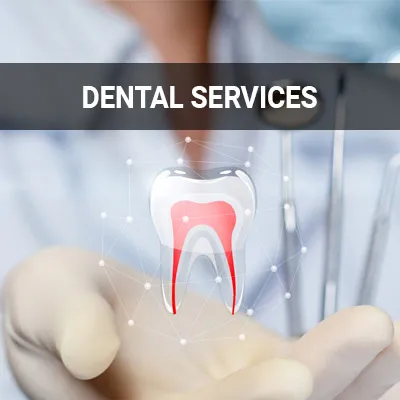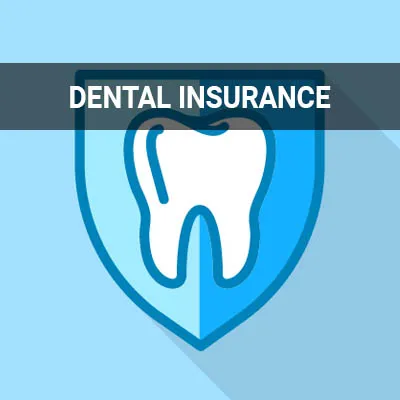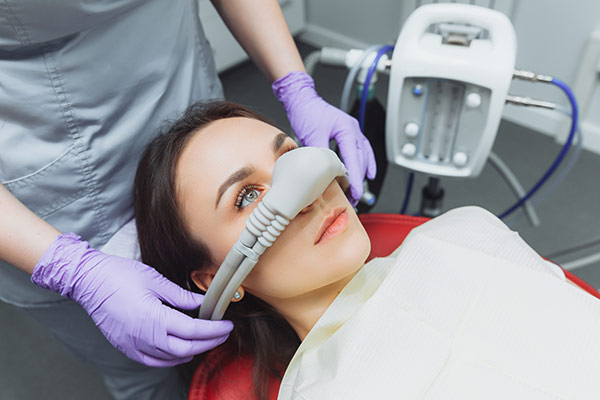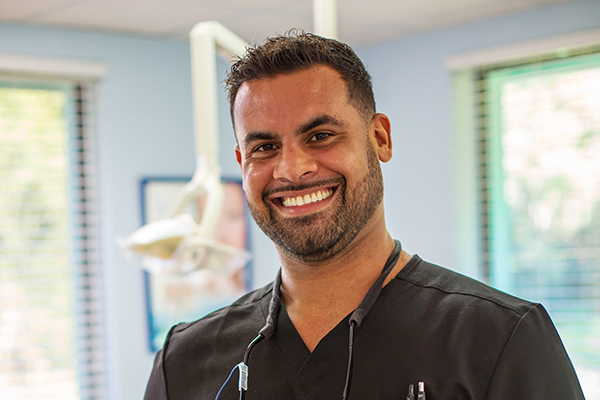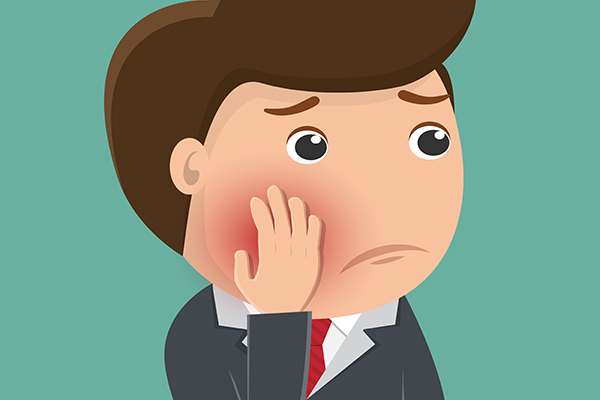Sedation Dentist Port St. Lucie, FL
Modern dentistry offers a variety of techniques to help patients stay comfortable during dental procedures. Learning more about these techniques can ease patients' concerns about the procedures they need. A sedation dentist uses medication to provide patients with a safe and comfortable dental care experience. Sedation can make necessary dental procedures much easier and is one of several options available to manage pain and anxiety at the dentist's office.
A sedation dentist is available at St Lucie Center for Cosmetic Dentistry in Port St. Lucie and the surrounding area. If you need dental work but feel anxious about what it entails, discuss how sedation can address your concerns. A qualified dentist can inform you about various options and make recommendations based on your concerns and medical history. Call us at (772) 242-4124 to schedule an appointment.
How Sedation Dentistry Works
A sedation dentist administers medicine that helps patients relax during the procedure. For most patients, this comes in addition to the usual pain relief, or an anesthetic, which is typically administered through an injection to the affected area. Sedation has the added effect of reducing patient anxiety and awareness of the details of a procedure.
WebMD explains that sedation for dental procedures can be mild, moderate, or deep. With mild sedation, most patients remain fairly alert but feel relaxed. Moderate sedation induces a deeper state of relaxation; patients undergoing it may not remember much of the procedure. Patients under deep sedation are still conscious but become drowsy and detached from their surroundings.
“A sedation dentist administers medicine that helps patients relax during the procedure.”
Treatments That Require Sedation
There are several types of medications potentially used in dental sedation. They can be given as a pill or administered intravenously. For minimal sedation, patients may receive gas inhaled through a mask. This type of sedation wears off quickly. The type of sedative used is determined by the patient's treatment, their tolerance, and conditions or illnesses they may have.
Local anesthesia is typically administered for minor restorative procedures such as cavity fillings, tooth extractions, root canal treatments, dental crown placement, and scaling and root planing. General anesthesia, usually inhaled or administered through an IV, is used for more severe procedures. It is commonly used for bone grafts, corrective jaw surgery, general tooth extractions, oral cancer surgery, sleep apnea surgery, cosmetic dental procedures, and cleft lip/palate surgery.
“The type of sedative used is determined by the patient’s treatment, their tolerance, and conditions or illnesses they may have.”
Benefits of Sedation Dentistry
In a study published by the Journal of Dental Hygiene, 19% of the 308 study participants suffered from moderate to high dental anxiety. A sizable part of this group even reported missing appointments because of dental fear. Sedation is one of the effective ways dentists have found to help patients get the care they need. Patients who have been avoiding necessary dental work due to anxiety can find sedation very helpful.
In addition to patients who suffer from nervousness, candidates for sedation may include those who have difficulty sitting for a long time. Some dental procedures necessitate remaining in the chair for a long time with minimal movement. Various physical and mental conditions can make this extremely difficult for some. Other issues where sedation can help include a strong gag reflex or a low pain threshold.
“Sedation is one of the effective ways dentists have found to help patients get the care they need.”
Check out what others are saying about our dental services on Yelp: Sedation Dentist in Port St. Lucie, FL
How To Prepare for a Sedation Dentist
Patients should do extensive research and book a consultation before scheduling an appointment with a sedation dentist. While most dentists are certified to perform mild sedation, only certain practitioners who have completed the Commission on Dental Accreditation can administer deep sedation.
Patients should meet with potential dentists to determine which type of sedation is most suitable for their individual needs. The dentist will determine this based upon patients' ages and health in addition to the severity of their anxiety. After reviewing the possible risks associated with sedation dentistry, the patient should consider the dentist's experience and determine if sedation is right for them.
“Patients should do extensive research and book a consultation before scheduling an appointment with a sedation dentist.”
Questions Answered on This Page
Q. How does sedation dentistry work?
Q. What types of dental procedures require sedation?
Q. Who can benefit from sedation?
Q. What are the benefits of sedation dentistry?
Q. When is sedation dentistry not possible?
People Also Ask
Q. How can I cope with dental anxiety?
Q. What does the dentist look for in a dental examination?
Q. How often do I need to visit the dentist?
Q. What do I need to know before starting the search for a dentist?
When Sedation Dentistry is Not Possible
While sedation dentistry can help many people, it is not possible for everyone. Patients with certain conditions such as obesity or obstructive sleep apnea may not be able to receive this treatment due to the possibility of complications. Our dentist will speak with patients before providing sedation to ensure that it is safe.
This process will include reviewing a patient's health history and medications to determine whether they are a good candidate for sedation. It is crucial to receive sedation from a trained and qualified sedation dentist. Our team will work with each patient to determine their candidacy for sedation and ensure their safety.
“Patients with certain conditions such as obesity or obstructive sleep apnea may not be able to receive this treatment due to the possibility of complications.”
Frequently Asked Questions
Q. Is sedation dentistry safe?
A. Sedation dentistry is safe for many people. However, patients who have sleep apnea or are obese have a higher risk of complications from the medication. They should inform the dentist of their medical history so the practitioner can determine if sedation is the right solution.
Q. Who should see a sedation dentist?
A. Patients who experience severe anxiety over the thought of visiting the dentist should consider sedation dentistry. According to WebMD, this practice also benefits people with gag reflexes, sensitive teeth, or low pain tolerances. It may also be an option for those who have difficulty sitting still for extended periods or need a significant amount of work done.
Q. Why are sedation dentists beneficial?
A. Proper oral hygiene, including routine dental exams and cleanings, is essential for good oral health. However, many people have distress during dental procedures, causing them to avoid the dentist as often as possible. This leads to a decline in oral health and could lead to major problems in the future. A sedation dentist helps patients relax to undergo the cleanings and other procedures they need to maintain healthy teeth.
Q. Can children see a sedation dentist?
A. According to the American Academy of Pediatrics, dental sedation is safe for children. Many kids are uncooperative or scared while in the dentist's chair, and sedation makes them feel at ease throughout the procedure. Most children only need mild sedation.
Q. Is there a recovery period after being sedated for dental procedures?
A. Most patients will feel drowsy for a few hours after seeing a sedation dentist. If you have received mild sedation, you may be able to drive yourself home but should rest the remainder of the day. Patients who receive moderate to deep sedatives will need someone else to drive them home and may sleep for a few hours after the appointment. However, all patients can resume their normal lifestyles the day after the procedure.
Dental Terminology
Consult a Dentist About Sedation During Procedures
Sedation dentistry offers a way to get necessary dental care without fear or anxiety. Talk to a dentist about sedation options today. Call us at 772-242-4124 to schedule a visit.
Helpful Related Links
- American Dental Association (ADA). Glossary of Dental Clinical Terms. 2024
- American Academy of Cosmetic Dentistry® (AACD). Home Page. 2024
- WebMD. WebMD’s Oral Care Guide. 2024
About our business and website security
- St Lucie Center for Cosmetic Dentistry was established in 1984.
- We accept the following payment methods: American Express, Cash, Check, Discover, MasterCard, and Visa
- We serve patients from the following counties: St. Lucie County
- We serve patients from the following cities: Port St. Lucie, River Park, White City, Fort Pierce, Fort Pierce South, St Lucie West, Tradition, Palm City, Jensen Beach, and Stuart
- Norton Safe Web. View Details
- Trend Micro Site Safety Center. View Details
Back to top of Sedation Dentist
